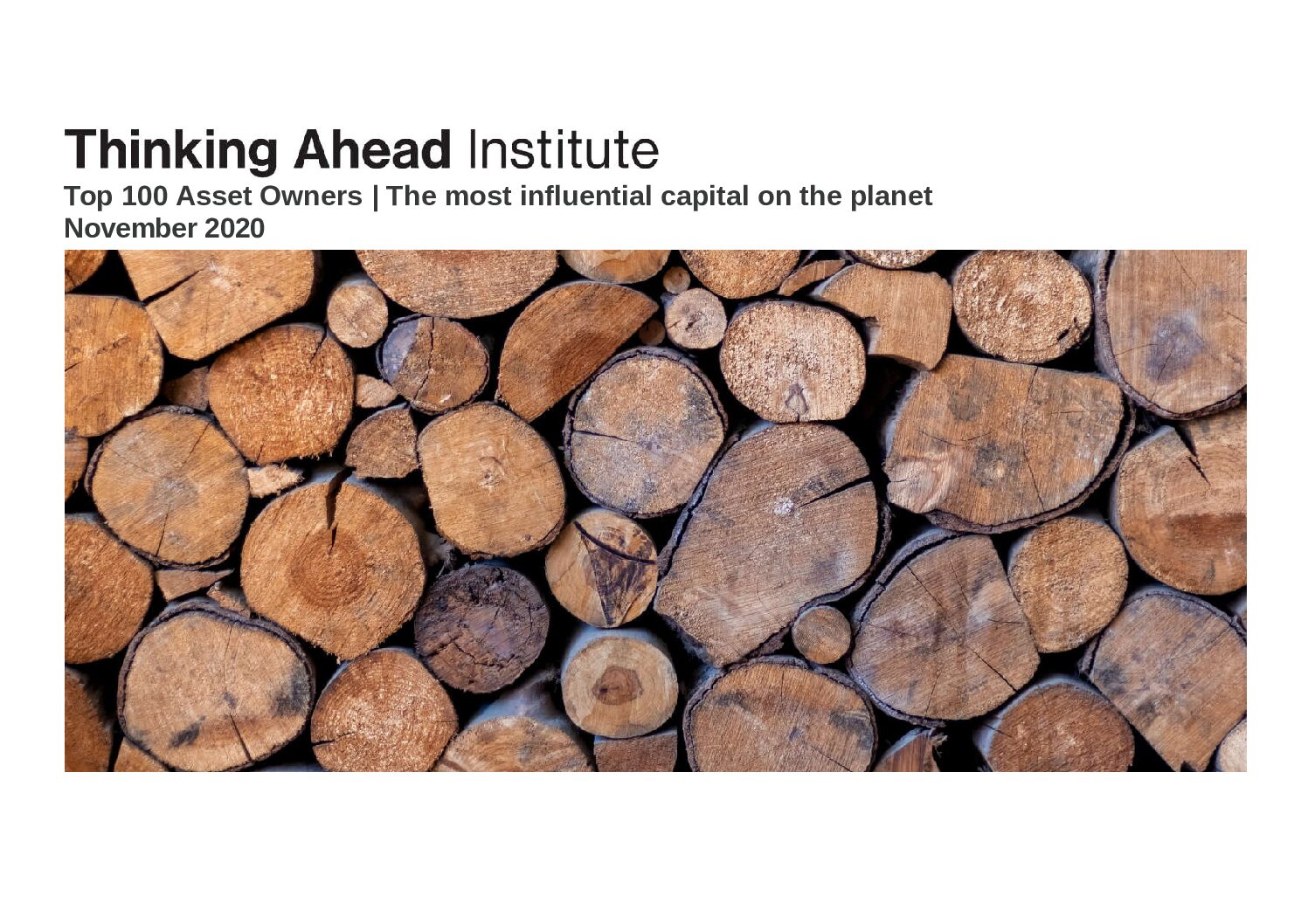The Asset Owner 100 is a Thinking Ahead Institute study which gathers data on the total assets of the top 100 asset owners around the world. Though not included in the ranking, the study also presents total assets for the top 10 insurers and the top 10 foundations and endowments.
What is an asset owner?
- Works directly for a defined group of beneficiaries/savers/investors as the manager of their assets in a fiduciary capacity (upholding loyalty and prudence) under delegated responsibility
- Works with a sponsoring entity, usually a government, part of government, a company or a not-for-profit
- Works within explicit law and possesses an implicit societal license to operate because of its societal trust and legitimacy
- Delivers mission-specific outcomes to beneficiaries and stakeholders in the form of various payments or benefits into the future
- Employs a business model that combines a governance budget (essentially resources and processes) and a risk budget (reflecting the mix of financial assets that delivers on the mission).
Key industry-wide observations
- Sustainability. The world’s top 100 asset owners have become more prominent in integrating ESG and being active owners, in many cases aiming for real-world impacts through their investment strategies. These increasingly include new elements, such as: factoring in member views; using new investment benchmarks and reporting on impacts (increasingly by reference to the TCFD framework and to the SDGs); reducing emissions from portfolios and investing in assets that will support the transition towards a low-carbon economy; and devising and implementing climate transition strategies that are Paris aligned.
- Evolutionary changes in the asset owner business model. Asset owners use people, networks, information and processes to create value for beneficiaries over extended periods. Leading asset owners are developing stronger leadership, emphasising culture and diversity with and through their own people, diminishing reliance on external provider networks over time. Processes to deal effectively with information at large asset owners remains a work-in-progress as they seek to turn a super-abundance of data into value-adding intellectual capital that can boost investment outcomes. At present, there remain considerable constraints around the effectiveness of the management and governance of data.
- Governance and culture remain areas where asset owners appear to trail other financial services organisations and limit the positive influences they can generate. However, we suggest there are between 10 and 20 very large asset owners globally that are well-governed, with effective cultures, providing leadership for others and constitute a considerable force for change.
- Universal investor strategies are pursued by an increasing number of the AO100 to contribute to safeguarding the financial system and addressing societal issues, including climate change without sacrificing risk-adjusted returns. These funds’ strategies often involve working through industry groups (e.g. PRI & Net-Zero Asset Owner Alliance) and using system-level engagement to improve long-term financial outcomes, through beta (market return) rather than alpha (securities relative return).
- Despite significant Covid-19 impacts on asset owners’ operations, they achieved a relatively smooth transition to a working-from-home model and maintained business continuity. While investment returns held up surprisingly well, the balance sheets of many DB pension funds and insurance companies were negatively affected by interest rate declines.

Related pages
Asset owner 100 2019
Asset owner 100 2019 press release
The world’s largest asset managers 2020 press release
The world’s largest asset managers 2020
The world’s largest pension funds 2020
The world’s largest pension funds 2020 press release
Global Pension Assets Study 2020
Global Pension Assets Study 2020 press release
Explore more Institute surveys

